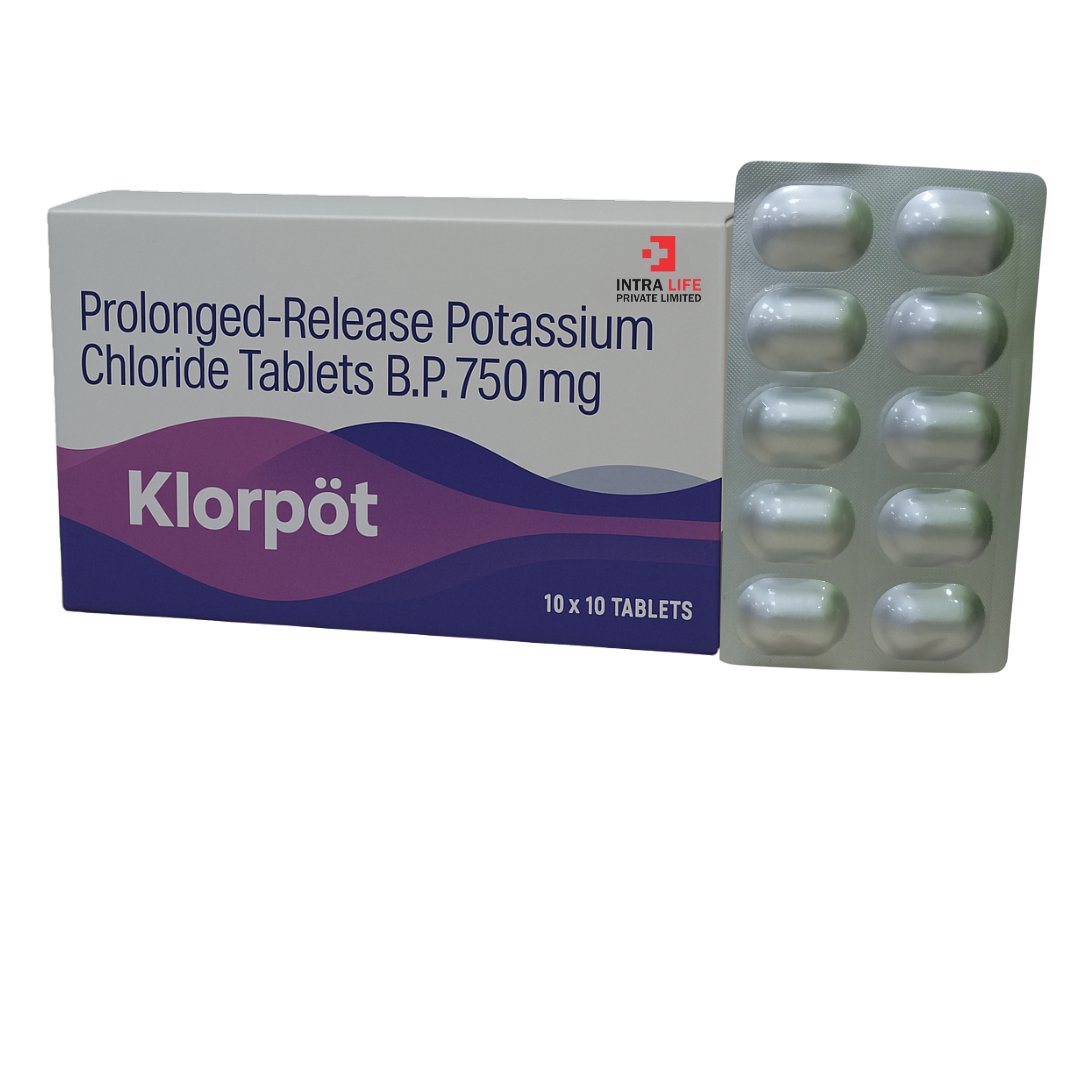
KLORPOT TAB
MRP: 2
Packaging: 10x10
Pack Type: tablet
Composition:
Potassium Chloride I.P. ..................... 750 mg Excipients ............................................... q.s. Colour : Titanium Dioxide I.P.
Indication:
for the treatment and prevention of hypokalemia (low potassium levels in the blood), which may occur due to conditions like prolonged vomiting, diarrhea, use of diuretics, or certain diseases. It helps maintain normal nerve, muscle, and heart function by replenishing potassium levels in the body.
Description:
Potassium Chloride I.P. 750 mg is an oral electrolyte supplement used to treat or prevent low potassium levels (hypokalemia) in the blood. Potassium is essential for the normal functioning of cells, muscles, nerves, and the heart. A deficiency can lead to fatigue, muscle weakness, irregular heartbeat, and cramping.
Each tablet contains Potassium Chloride 750 mg, with pharmaceutical-grade excipients and Titanium Dioxide IP as a permitted colorant.
This supplement is commonly used in patients undergoing diuretic therapy, with chronic kidney disease, or those experiencing potassium loss due to diarrhea or prolonged illness.
Tags:
- Restores normal potassium levels in the body
- Supports heart rhythm, muscle strength, and nerve impulses
- Prevents fatigue, cramps, and irregular heartbeat
- Essential for patients on diuretic therapy
- Easy-to-swallow oral tablet
Usage Information
Dosage
Typical Dose: As prescribed by a physician (usually 1–2 tablets/day) Take with meals or a full glass of water Do not crush or chew sustained-release tablets Avoid potassium-rich foods unless advised
Side Effects
Nausea or vomiting Abdominal discomfort Diarrhea High potassium (hyperkalemia) symptoms: muscle weakness, irregular heartbeat Seek immediate care if signs of overdose or serious reactions occur.
Contraindications
Hyperkalemia (high potassium levels) Renal failure or severe kidney disease Addison’s disease Dehydration or heat stroke Concurrent potassium-sparing diuretic use (e.g., spironolactone)
